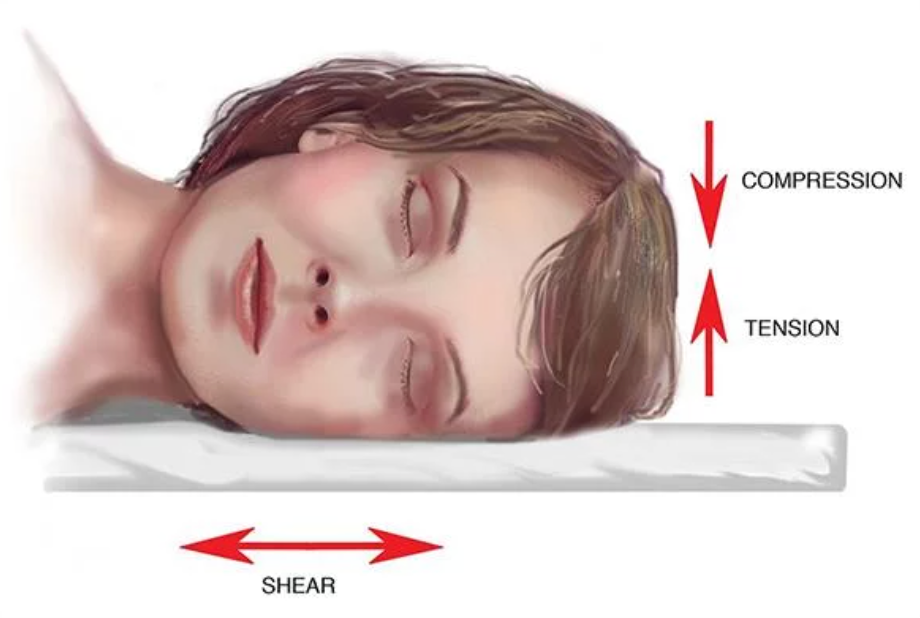Is Sleeping Related to Wrinkles?Longevity?
- lisawumba
- Jun 27
- 4 min read
Updated: Jun 30
Can wrinkles emerge from our sleep habits? Are there different types of wrinkles? What does sleep deprivation have to do with our attractiveness and health? What at-home and board certified professional treatments can improve wrinkles?

Beauty Sleep: The Remarkable Magic that Influences Our Glow & Longevity
There’s science that backs up beauty sleep. It’s a cornerstone for our appearance, skin and brain health, cellular repair, and even a longer, healthier life.
Aesthetic, Biological, Physiological Benefits From A Healthy Sleep Routine include your glowing facial appearance.
Collagen production peaks: This structural protein keeps skin firm and elastic.
Cell turnover accelerates: Old skin cells shed, making way for fresh, radiant skin.
Inflammation decreases: Less puffiness, redness, and breakouts.

Evenly toned and hydrated skin, fewer wrinkles, less dark circles, and attractiveness are remarkably visible from good quality sleep. During deep sleep, blood flow to the skin increases, delivering oxygen and nutrients that help repair daily damage from UV rays, pollution, and stress. With quality sleep, we have better skin barrier function, improved collagen production and skin hydration, increased cell turnover, decreased inflammation, and better overall cognitive function and physical well-being compared to poor sleep.
Negative Effects from Poor Quality or Sleep Deprivation on facial appearance and social appeal – things like bags and dark circles around our eyes, lower cognitive capacity, increased wrinkles, weight gain, acne, dull skin, and more – were linked in a 2017 study. The findings show that acute sleep deprivation and looking tired are related to less attractiveness and health as perceived objectively by others.
Facial Aesthetics: Sleep Wrinkles and Expression Wrinkles
Expression Wrinkles come about from facial expressions produced by daily repetitive muscle movements. They develop in facial locations where muscles repeatedly contract from smiling, frowning, or squinting. Classic examples of expression wrinkles are crows feet or wrinkles between eyebrows at the bridge of the nose from frowning.
Sleep Wrinkles are different. They are associated and produced from the compression, crushing, and tension from the placement of our head and face on the pillow when we sleep on our side and stomach.

Repeated over time, sleep wrinkles tend to worsen as the skin thins and the elasticity decreases as we age. Sleep wrinkle lines run 90 degrees or diagonally to the expression wrinkles. Typically, they are vertical lines at the temple, nostrils, under the eyes, and at the chin. Various studies point to the outcomes of sleep position on facial aging and wrinkles.

Home Lifestyle Solutions to minimize sleep wrinkles, try sleeping on your back. A caveat, however, is sleep apnea. If that disorder is present, then consulting with your healthcare provider is vital. When you sleep on your back, support your head and neck with a pillow that is firmer and less fluffy and bouncy. Memory foam is an option that reduces the smothering effect from a puffy pillow. And for the pillowcase, try using silk. This material can help retain skin and hair hydration, minimize friction, reduce the creasing and stretching of our skin, and regulate the temperature because of its breathability and moisture-wicking properties. Additionally, apply 30+ SPF sunscreen every day at the start of your day with re-application throughout the day.
Board Certified Estheticians performing non-invasive treatments address wrinkles, including facials for hydration and exfoliation with massage, HydraFacials, LED light therapy, microneedling, microcurrents, microdermabrasion, lymphatic drainage massage, chemical peels, gua sha, and infrared sauna. Esthetician treatments complement pre- and post-aesthetic plastic surgery and cosmetic enhancements to optimize patient recovery and results for the patient journey of confidence and appearance.
Cosmetic Medical Treatments from board certified plastic surgeons and dermatologists to address sleep wrinkles include dermal fillers, Botox, exosome therapy, laser resurfacing, chemical peels, microneedling, intense pulsed light, radiofrequency, and aesthetic rejuvenation procedures.
Sleep & Longevity: The Hidden Connection
Sleep affects how we look now and as we age. Moreover, research found that consistently sleeping for 7-9 hours per night is linked to a longer lifespan. Chronic sleep deprivation, on the other hand, accelerates biological aging that impacts the physicality of our face, the appearance of our face, and physical health.
Sleep loss from disruption or poor quality can impact our biological processes such as sex hormones like testosterone and estrogen, menstrual cycles, fertility, and more. Causal links or associations affecting our physiology include higher levels of cortisol that break down collagen; lower levels of growth hormones affecting cellular repair and regeneration; increased inflammation that’s tied to skin aging, heart disease, and diabetes; dilated blood vessels; shortened telomeres; and elevated oxidative damage from accumulated free radicals and reactive oxygen species (ROS) that disrupt our gut microbiomes, and more effects.
Remaster Your Beauty Sleep for Glowing Health & Longevity
Some tips for restoring our health include nightly quality sleep for 7 to 9 hours, waking up at a customary time each morning, keeping our sleep environment dark and cool (around 65°F), closing down our screentime 30 minutes before bedtime, staying hydrated during the day, using a gentle nighttime skincare routine that includes retinoids and/or peptides, sleeping on our back, meditating or journaling, and avoiding late caffeine & heavy meals.
June 27, 2025


